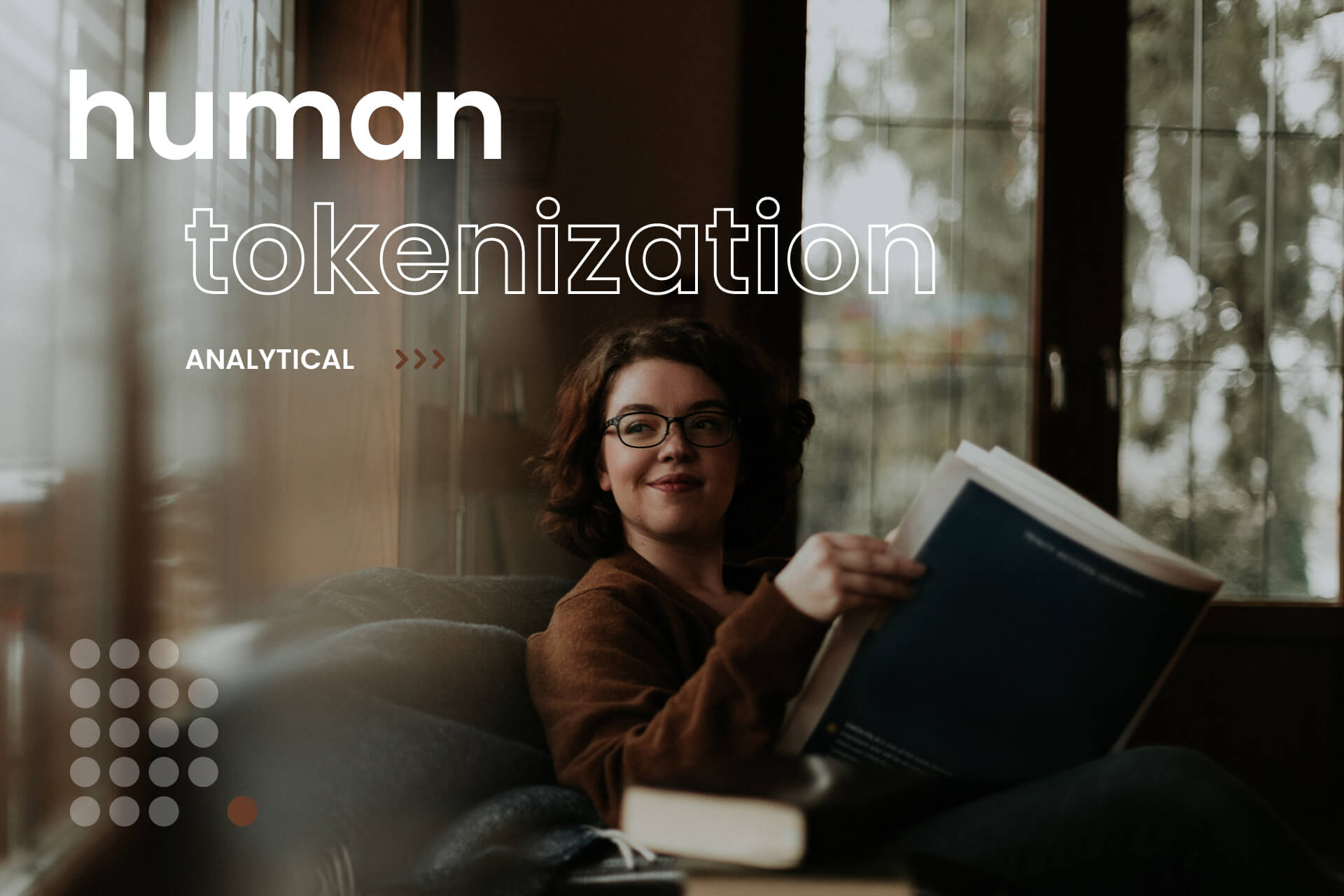
Mike Merrill is the world’s first publicly traded person on whom Sony Pictures TV is now creating a show. He started selling shares of himself back in 2008, an initial price of $1 per share.
Mike divided himself into 100,000 shares and gave his shareholders significant control over his life. While the ownership is just a metaphor of trust, Mike Merrill says that his personal share trading is modeled after a stock market.
The investors buy shares and give Mr Merrill the money. The more they invest, the higher influence they have on Mr Merrill’s life choices. In exchange he acts according to their votes: participates in the election, shows on TV, or becomes a member of a certain party. The shareholders even made decisions on his love life.
Sponsored
The price of Mike Merrill peaked to $25 back in 2013, however, corrected since then and trades at $4.80 in January 2021.
Human tokenization
Human tokenization progressed far further since Mike Merrill’s self-selling experiment started. The token economy changed how we create and distribute value. It broke down the assets into factions and made ownership available for multiple parties.
Now anything that can be digitized, can be tokenized. Even humans. Speaking more precisely, their time or potential.
Sponsored
Enabled by the smart contract protocols human tokenization created a new asset class. The possibilities of monetization of someone’s efforts, skills, education, or creativity became endless. Issuing a personal token allows someone to turn into a financial instrument, while others can bet on his future.
The idea is simple: as the people behind their personal tokens become more successful, their time and thus tokens increase in value.
Meanwhile, the investors are able to invest in personal tokens, trade and earn from their investments or redeem the time they bought.
Investing in human time is still a very new option, which we could say somewhat derived from the Income Sharing Agreement (ISA), the pioneer of the investments in human time and personal tokenization.
ISA is the kind of contract between the student and educational institutions or business companies. The latter agrees to fund the studies and in exchange get the percentage of the student’s future salary after graduation.
The tokenization of human expertise has now made a new step further. Although it is still in the early stages, there are certain examples of how human capital, or an economic value of personal skills, can be converted into money in a fundamentally new way.
The examples of human monetization
A digital product designer Matthew Vernon better known as the dAPP_BOI was one of the pioneers in issuing personal tokens. Two years ago he released his BOI token, which can be exchanged for 1 hour of design work or consultation on crypto projects.
He created 100 BOI tokens and sold them at his standard hourly rate of the time. After the tokens were sold, they became tradable on the decentralized exchanges. And thus the market became the one to decide on his true value as a designer.
In April of 2020, an entrepreneur Alex Masmej raised $20,000 in exchange for his personal token $ALEX. He sold 10% of the $ALEX token supply in nearly 100 hours and promised to pay 15% of all his personal income made within the next 3 years to his shareholders. It was more an experiment with a final goal of raising funds for Alex Masmej’s trip to San Francisco.
A few months later Austrian entrepreneur Kerman Kohli issued his personal token $KERMAN and raised $30,000 in exchange for his business consultations, coverage in a DeFi (decentralized finance) media, subscriptions and tweets.
Basketball player and Bitcoin investor Spencer Dinwiddie tokenized his $34 million NBA contract for over 3 years. The player aimed to raise the majority of funds upfront and not wait for 3 years to be paid out. His investors, meanwhile, will be rewarded with nearly 5% monthly dividends over 3 years.
There are many other examples of personal token issuance, especially when the new specialized infrastructure appears. Specialized platforms like PersonalTokens, athletes-oriented TokenStars or Roll help make personal tokenization possible and quite simple.
How can human capital tokenization be beneficial?
1. Individual fundraising
Personal tokens create an ability to tokenize future earnings. Anyone who intends to create a personal business or start-up and lacks the capital to pay the upfront expenses can create a redeemable token and exchange it for the value of personal time or skills.
2. Price growth
With personal tokens being on sale, the market itself decides how much it is willing to pay for the services. As in any other asset class, the same economic principles apply to tokens of human capital. The more buyers it gets, the more it grows up. The market gives a clear perception on what is the real-time value of the services.
3. Global clients
Tokenizing your skills, knowledge or time creates direct access to a global client base without using freelance platforms or other intermediaries. This means less fee, more profit. This form of earning can be especially attractive for those working online: programmers, content creators, designers, or consultants.
What risks does it have?
1. Trust issues
Personal token investors rely on the promises when buying future services. The reputation of the creator and trust is the only value of the personal token. If the issuer refuses to provide services or misses the deadlines (like KERMAN did once), he certainly discredits his reputation, but for the investor, it can be difficult to force the token issuer to fulfill obligations.
This is exactly the opposite of the values that blockchain, cryptocurrencies, and decentralization hold.
2. Price volatility
Decentralized platforms like Uniswap make personal token listings quite easy. If there is enough liquidity, the token’s price can skyrocket, which is certainly a huge benefit for the token issuer.
However, the higher price fluctuations and volatility might be a risk for other investors. They can simply exit the personal token market as the asset becomes too expensive for them or it’s price lacks stability.
3. Unclear regulation
While ICO (Initial Coin Offerings) were considered illegal in many countries, the personal token sales are as well a bit of a grey area. Since personal tokens can be redeemed for the immediate service, there might be a lot of nuances of how they should be regulated.
The regulators might not be applied on projects of a small scale. However, at some point, anyone issuing personal tokens and investing in them might be at risk of operating illegally. This means that no rules might be in effect to protect an investor.
4. Market manipulations
No one can be sure that the personal token trading markets are playing fair. The artificially pumping or dumping the price of an asset for personal gain is still a huge risk.
And while personal tokens are highly tied with a person’s reputation, the threat of disinformation, intentional slander, or fake news campaigns can be used to affect both the token issuers and the investors.
Is personal tokenization a sustainable trend?
A tokenized economy opens limitless possibilities and the potential for creating a more efficient and engaging environment. The new asset classes including the human capital are allowed to emerge and change the ways we invest.
The trend of tokenization may disrupt many industries and transform them to be more transparent, efficient, cheaper, faster, even more liquid. The question is can the tokenization of human capital become a new norm?
Human capital tokenization is certainly an innovative financial instrument. It is able to give initial funds for those who are not a subject for venture capitalists or angel investors. They can sell their time for those who believe in them, get funds today and start new projects, businesses or simply begin doing something they are really passionate about.
However, there still are multiple obstacles to overcome for human tokenization to take off. The lack of regulation is still one of the biggest issues that prevent further development. Should they be perceived as security or utility tokens?
And if personal tokens are considered securities, it will be mandatory for them to comply with the local laws, which vary across different jurisdictions. This would definitely be safer for the investors, but more challenging for the issuers.
Accordingly, there are yet no guarding mechanisms against risks of speculations on the issuer’s future earnings. And since personal tokens are backed only by the issuer’s reputation, there is unclear what happens when he or she dies or faces severe health issues?
Summarising all that, personal tokenization seems like a really open way of investing in anyone’s time and skills without intermediaries. It has the potential to create a mutually beneficial ecosystem, where both parties profit. On the other hand, it is a new and risky asset class that is still in its early stages. Although the infrastructure is evolving, it requires time and game rules to become widely adopted.
